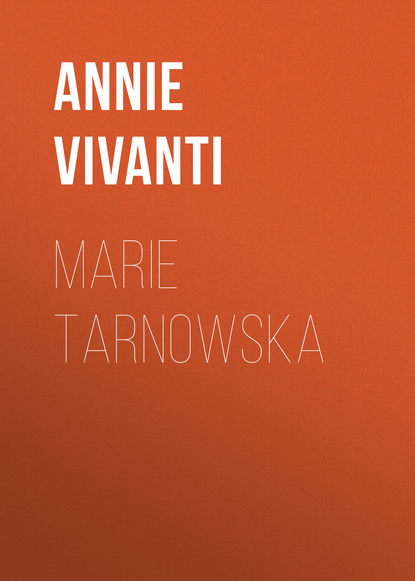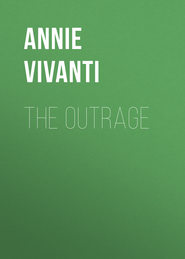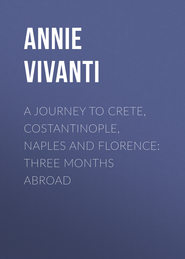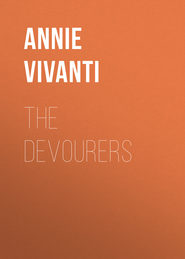По всем вопросам обращайтесь на: info@litportal.ru
(©) 2003-2024.
✖
Marie Tarnowska
Настройки чтения
Размер шрифта
Высота строк
Поля
Stahl, who seemed to have suddenly regained his senses, came quickly to the bedside. I had laid Bozevsky back on the pillow and he was looking at us with wide-open eyes.
“Yes,” said Stahl, contemplating him thoughtfully. “Yes.” Suddenly he turned to me. “Come here, come here. Why should I let you suffer?”
Then I saw that he had in his hand a small glass instrument—a morphia syringe. He seized my wrist as in a vice and with the other hand pushed back the loose sleeve of my gown.
“What are you going to do?” I gasped.
“Why, why should you suffer?” cried Stahl, holding me tightly by the arm.
“Are you killing me?” I cried.
“No, no. I shall not kill you. You will see.”
I let him take my arm and he pricked it with the needle of the syringe, afterwards pressing and rubbing the punctured spot with his finger.
“Now you will see, now you will see,” he repeated over and over again with a vague stupefied smile. “Sit down there,” and he impelled me towards an armchair.
Bozevsky in his wet bandages on his wet pillow was watching us. I wanted to go to his assistance, to speak to him—but already a vague torpor was stealing over me, a feeling of gentle langour weighed upon my limbs. My tense and quivering nerves gradually relaxed. I felt as if I were submerged in a vague fluid serenity. Every anxious thought dissolved in a bland and blissful somnolence.... I could see Bozevsky move restlessly and again begin to turn his head from side to side. Sunk in the divine lassitude that held me, I watched his movements, glad that the sight of them gave me no pain.
I saw that Stahl had stretched himself on the couch and lay there with a vacant ecstatic smile on his lips.
All at once Bozevsky uttered a cry. I heard him, but I felt no inclination to answer. He struggled into a sitting position and looked at us both with wide, horrified eyes. He called us again and again. Then he began to weep. I could hear his weeping, but the beatific lethargy which engulfed me held me motionless. Perhaps I was even smiling, so free and so remote did I feel from all distress and suffering.
And now I saw Bozevsky with teeth clenched and hands curved like talons, madly clutching and tearing away the bandages from his neck.
He dragged and tore the gauze with quick frenzied movements, while from his lips came a succession of whimpering cries as of a dog imprisoned behind a door.
I smiled, I know I smiled, as I gazed at him from my armchair.
Stahl's eyes were shut; he was fast asleep.
Even when the wasted neck was stripped bare, those quick, frenzied movements still continued. What my eyes then saw I can never tell....
Thus died Alexis Bozevsky, the handsomest officer in the Imperial Guard.
XIX
After that all is dark. A blood-red abyss seems to open in my memory wherein everything is submerged—even my reason.
My reason! I have felt it totter and fall, like something detached and apart from myself; and I know that it has sunk into the grave that covers Alexis Bozevsky.
Vaguely, from my distant childhood, a memory rises up and confronts me.
I am in a school. I know not where. It is sunset, and I am at play, happy and alone, in the midst of a lawn; the daisies in the grass are already closed and rose-tipped, blushing in their sleep. Some one calls my name, and raising my eyes I see the small eager face of my playmate Tatiana peering out of an oval window in an old turret, where none of us are ever allowed to go. “Mura! Mura! Come quickly,” she cries. “The turret is full of swallows!”
“Full of swallows!” I can still recall the ecstasy of joy with which those three words filled me. I ran to the entrance of the old tower and helter-skeltered up the dark and narrow staircase; then, pushing aside a mildewed door, I found myself with Tatiana in a gloomy loft, and yes, yes! it was full of swallows!
They flew hither and thither, darting over our heads, brushing our faces, making us shriek with delight. We managed to catch any number of them. Many were even lying on the ground. Tatiana filled her apron with the fluttering creatures, while I held some in my handkerchief and some in my hands. Then we ran downstairs into the dining-hall: “Look, look! we have caught a lot of swallows!” I can still see the girls crowding round us, and the face of the mistress bending forward with an incredulous smile; I see her shrink back, horrified and pale, with a cry of disgust: “Mercy upon us! They are all bats!”
Even now the recollection of the shrieks we uttered as we flung them from us makes my flesh creep; even now I seem to feel the slippery smoothness of those cold membranes gliding through my fingers and near my cheeks....
To what end does this childish recollection enter into the dark tragedy of my life? This—that when I mount into the closed turret of my mind in quest of winged thoughts and soaring fancies, alas! there glide through my brain only the monstrous spirits of madness, the black bats of hypochandria....
I remember little or nothing of those somber days in Yalta. I can vaguely recollect Stahl telling me over and over again in answer to my delirious cries for Bozevsky: “He is dead! He is dead! He is dead!” And as I could not and would not believe him, he took me in a closed carriage through many streets; then into a low building and through echoing stone passages into a large bare room—a dissecting room!
The horror of it seals my lips.
Still more vaguely do I recollect the death of Stahl himself. I know that one evening he shot himself through the heart, and was carried to the hospital. I know that he sent me the following words traced in tremulous handwriting on a torn piece of paper: “Mura! I have only half an hour to live. Come to me, I implore you. Come!”
I did not go to him. The terrible lessons he had taught me were bearing fruit; all I did when brought face to face with some new calamity was to take injection after injection of morphia; and thus I sank down again into the twilight world of unreality in which, during that entire period, I moved like one in a dream.
I seemed to be living under water, in a perpetual dimness—a fluid, undulating dusk.
No sooner did I find myself rising to the surface of consciousness, and the noisy harshness of life confronted me again, than my trembling hands sought the case that hid the little glass viper of oblivion—the hypodermic syringe of Pravaz.
Over the tremulous flame of a candle I heated the phial of whitish powder and watched it gradually dissolve into a clear crystalline liquid that the hollow needle thirstily drank up: then I bared my arm and thrust the steel point aslant into my flesh. Soothing and benumbing the morphia coursed through my veins; and I sank once more into the well-known beatific lethargy, the undulating dusk of unreality and sleep....
But one day a call thrilled through the enveloping cloud and reached my heart: it was the call of motherhood. Tioka! Tania! Where were my children? Why, why were my arms empty when these two helpless and beloved creatures were mine?
Horrified at myself and at the dream-like apathy in which I had strayed so long, I tore myself from the degrading captivity of narcotics and with trembling steps tottered towards the threshold of life once more.
With dazed eyes I beheld the altered world around me.
How everything had changed! I was no longer the Countess Tarnowska, flattered, envied and beloved. The women who had formerly been my friends turned their eyes away from me, while on the other hand men stared at me boldly in a way they had never dared to look at me before. Vassili—the frivolous, light-hearted Vassili—shut his door upon me, and secluded himself in grim and formidable silence as in the walls of a fortress. Vainly did I beat upon it with weak hands, vainly did I pray for pity. Inexorable and inaccessible he remained, locked in his scorn and his resentment. Nor ever have the gates of his home or of his heart opened to me again.
I took refuge with my children at Otrada.
My parents received us in sorrow and humiliation. Themselves too broken in spirit to offer me any consolation, they moved silently through the stately mansion, blushing for me before the servants, hiding me from the eyes of their friends.
Even my children hung their heads and crept about on tiptoe, mute and abashed without knowing why.
One day Tania, my little Tania, was snatched from my arms. Vassili took her from me, nor did I ever see her again.
I had gone out, I remember, sad and alone, into the wintry park. By my side trotted Bear, my father's faithful setter, who every now and then thrust his moist and affectionate nose into my hand. In my thoughts I was trying to face what the future might have in store for me.
“When my little Tioka grows up,” I said to myself, “I know, alas! that I shall lose him. He will want to live with his father: he will look forward to entering upon life under happy and propitious auspices. Yes, Tioka will leave me, I know. But my little girl will stay with me. Tania will be my very own. She will grow up, fair and gentle, by my side; I shall forget my sorrows in her clinging love; I shall live my life over again in hers. I shall be renewed, in strength and purity, in my daughter's stainless youth.”
As I thus reflected I saw my mother running to meet me, her gray head bare in the icy wind; she was weeping bitterly. Tania was gone! Vassili had taken her away!
Notwithstanding all my tears and prayers it was never vouchsafed to me to see my little girl again.
But when the day came in which they sought to tear my son from me as well, I fought like a maddened creature, vowing that no human power should take him from me while I lived. I fled with him from Otrada—I fled I knew not and cared not whither, clasping in my arms my tender fair-haired prey, watching over him in terror, guarding him with fervent prayers. I fled, hunted onward by the restlessness that was in my own blood, pursued by the bats of madness in my brain.
Thus began my aimless wanderings that were to lead me so far astray.
Alone with little Tioka and the humble Elise Perrier, I took to the highways of the world.
How helpless and terrified we were, all three of us! It was like living in a melancholy fairy tale; it was like the story of the babes lost in the wood. Sometimes, in the midst of a street in some great unknown city, little Tioka would stop and say: “Mother, let us find some one who knows us, and ask them where we are to go and what we are to do.”
“Yes,” said Stahl, contemplating him thoughtfully. “Yes.” Suddenly he turned to me. “Come here, come here. Why should I let you suffer?”
Then I saw that he had in his hand a small glass instrument—a morphia syringe. He seized my wrist as in a vice and with the other hand pushed back the loose sleeve of my gown.
“What are you going to do?” I gasped.
“Why, why should you suffer?” cried Stahl, holding me tightly by the arm.
“Are you killing me?” I cried.
“No, no. I shall not kill you. You will see.”
I let him take my arm and he pricked it with the needle of the syringe, afterwards pressing and rubbing the punctured spot with his finger.
“Now you will see, now you will see,” he repeated over and over again with a vague stupefied smile. “Sit down there,” and he impelled me towards an armchair.
Bozevsky in his wet bandages on his wet pillow was watching us. I wanted to go to his assistance, to speak to him—but already a vague torpor was stealing over me, a feeling of gentle langour weighed upon my limbs. My tense and quivering nerves gradually relaxed. I felt as if I were submerged in a vague fluid serenity. Every anxious thought dissolved in a bland and blissful somnolence.... I could see Bozevsky move restlessly and again begin to turn his head from side to side. Sunk in the divine lassitude that held me, I watched his movements, glad that the sight of them gave me no pain.
I saw that Stahl had stretched himself on the couch and lay there with a vacant ecstatic smile on his lips.
All at once Bozevsky uttered a cry. I heard him, but I felt no inclination to answer. He struggled into a sitting position and looked at us both with wide, horrified eyes. He called us again and again. Then he began to weep. I could hear his weeping, but the beatific lethargy which engulfed me held me motionless. Perhaps I was even smiling, so free and so remote did I feel from all distress and suffering.
And now I saw Bozevsky with teeth clenched and hands curved like talons, madly clutching and tearing away the bandages from his neck.
He dragged and tore the gauze with quick frenzied movements, while from his lips came a succession of whimpering cries as of a dog imprisoned behind a door.
I smiled, I know I smiled, as I gazed at him from my armchair.
Stahl's eyes were shut; he was fast asleep.
Even when the wasted neck was stripped bare, those quick, frenzied movements still continued. What my eyes then saw I can never tell....
Thus died Alexis Bozevsky, the handsomest officer in the Imperial Guard.
XIX
After that all is dark. A blood-red abyss seems to open in my memory wherein everything is submerged—even my reason.
My reason! I have felt it totter and fall, like something detached and apart from myself; and I know that it has sunk into the grave that covers Alexis Bozevsky.
Vaguely, from my distant childhood, a memory rises up and confronts me.
I am in a school. I know not where. It is sunset, and I am at play, happy and alone, in the midst of a lawn; the daisies in the grass are already closed and rose-tipped, blushing in their sleep. Some one calls my name, and raising my eyes I see the small eager face of my playmate Tatiana peering out of an oval window in an old turret, where none of us are ever allowed to go. “Mura! Mura! Come quickly,” she cries. “The turret is full of swallows!”
“Full of swallows!” I can still recall the ecstasy of joy with which those three words filled me. I ran to the entrance of the old tower and helter-skeltered up the dark and narrow staircase; then, pushing aside a mildewed door, I found myself with Tatiana in a gloomy loft, and yes, yes! it was full of swallows!
They flew hither and thither, darting over our heads, brushing our faces, making us shriek with delight. We managed to catch any number of them. Many were even lying on the ground. Tatiana filled her apron with the fluttering creatures, while I held some in my handkerchief and some in my hands. Then we ran downstairs into the dining-hall: “Look, look! we have caught a lot of swallows!” I can still see the girls crowding round us, and the face of the mistress bending forward with an incredulous smile; I see her shrink back, horrified and pale, with a cry of disgust: “Mercy upon us! They are all bats!”
Even now the recollection of the shrieks we uttered as we flung them from us makes my flesh creep; even now I seem to feel the slippery smoothness of those cold membranes gliding through my fingers and near my cheeks....
To what end does this childish recollection enter into the dark tragedy of my life? This—that when I mount into the closed turret of my mind in quest of winged thoughts and soaring fancies, alas! there glide through my brain only the monstrous spirits of madness, the black bats of hypochandria....
I remember little or nothing of those somber days in Yalta. I can vaguely recollect Stahl telling me over and over again in answer to my delirious cries for Bozevsky: “He is dead! He is dead! He is dead!” And as I could not and would not believe him, he took me in a closed carriage through many streets; then into a low building and through echoing stone passages into a large bare room—a dissecting room!
The horror of it seals my lips.
Still more vaguely do I recollect the death of Stahl himself. I know that one evening he shot himself through the heart, and was carried to the hospital. I know that he sent me the following words traced in tremulous handwriting on a torn piece of paper: “Mura! I have only half an hour to live. Come to me, I implore you. Come!”
I did not go to him. The terrible lessons he had taught me were bearing fruit; all I did when brought face to face with some new calamity was to take injection after injection of morphia; and thus I sank down again into the twilight world of unreality in which, during that entire period, I moved like one in a dream.
I seemed to be living under water, in a perpetual dimness—a fluid, undulating dusk.
No sooner did I find myself rising to the surface of consciousness, and the noisy harshness of life confronted me again, than my trembling hands sought the case that hid the little glass viper of oblivion—the hypodermic syringe of Pravaz.
Over the tremulous flame of a candle I heated the phial of whitish powder and watched it gradually dissolve into a clear crystalline liquid that the hollow needle thirstily drank up: then I bared my arm and thrust the steel point aslant into my flesh. Soothing and benumbing the morphia coursed through my veins; and I sank once more into the well-known beatific lethargy, the undulating dusk of unreality and sleep....
But one day a call thrilled through the enveloping cloud and reached my heart: it was the call of motherhood. Tioka! Tania! Where were my children? Why, why were my arms empty when these two helpless and beloved creatures were mine?
Horrified at myself and at the dream-like apathy in which I had strayed so long, I tore myself from the degrading captivity of narcotics and with trembling steps tottered towards the threshold of life once more.
With dazed eyes I beheld the altered world around me.
How everything had changed! I was no longer the Countess Tarnowska, flattered, envied and beloved. The women who had formerly been my friends turned their eyes away from me, while on the other hand men stared at me boldly in a way they had never dared to look at me before. Vassili—the frivolous, light-hearted Vassili—shut his door upon me, and secluded himself in grim and formidable silence as in the walls of a fortress. Vainly did I beat upon it with weak hands, vainly did I pray for pity. Inexorable and inaccessible he remained, locked in his scorn and his resentment. Nor ever have the gates of his home or of his heart opened to me again.
I took refuge with my children at Otrada.
My parents received us in sorrow and humiliation. Themselves too broken in spirit to offer me any consolation, they moved silently through the stately mansion, blushing for me before the servants, hiding me from the eyes of their friends.
Even my children hung their heads and crept about on tiptoe, mute and abashed without knowing why.
One day Tania, my little Tania, was snatched from my arms. Vassili took her from me, nor did I ever see her again.
I had gone out, I remember, sad and alone, into the wintry park. By my side trotted Bear, my father's faithful setter, who every now and then thrust his moist and affectionate nose into my hand. In my thoughts I was trying to face what the future might have in store for me.
“When my little Tioka grows up,” I said to myself, “I know, alas! that I shall lose him. He will want to live with his father: he will look forward to entering upon life under happy and propitious auspices. Yes, Tioka will leave me, I know. But my little girl will stay with me. Tania will be my very own. She will grow up, fair and gentle, by my side; I shall forget my sorrows in her clinging love; I shall live my life over again in hers. I shall be renewed, in strength and purity, in my daughter's stainless youth.”
As I thus reflected I saw my mother running to meet me, her gray head bare in the icy wind; she was weeping bitterly. Tania was gone! Vassili had taken her away!
Notwithstanding all my tears and prayers it was never vouchsafed to me to see my little girl again.
But when the day came in which they sought to tear my son from me as well, I fought like a maddened creature, vowing that no human power should take him from me while I lived. I fled with him from Otrada—I fled I knew not and cared not whither, clasping in my arms my tender fair-haired prey, watching over him in terror, guarding him with fervent prayers. I fled, hunted onward by the restlessness that was in my own blood, pursued by the bats of madness in my brain.
Thus began my aimless wanderings that were to lead me so far astray.
Alone with little Tioka and the humble Elise Perrier, I took to the highways of the world.
How helpless and terrified we were, all three of us! It was like living in a melancholy fairy tale; it was like the story of the babes lost in the wood. Sometimes, in the midst of a street in some great unknown city, little Tioka would stop and say: “Mother, let us find some one who knows us, and ask them where we are to go and what we are to do.”








